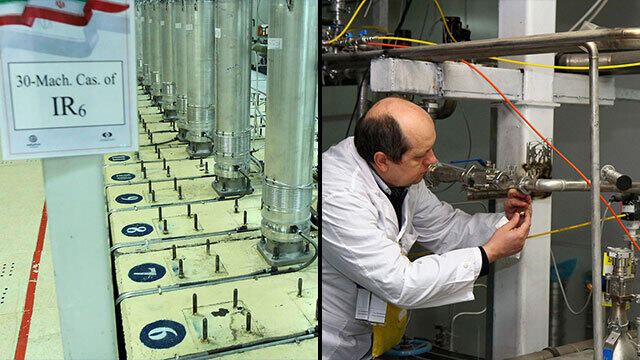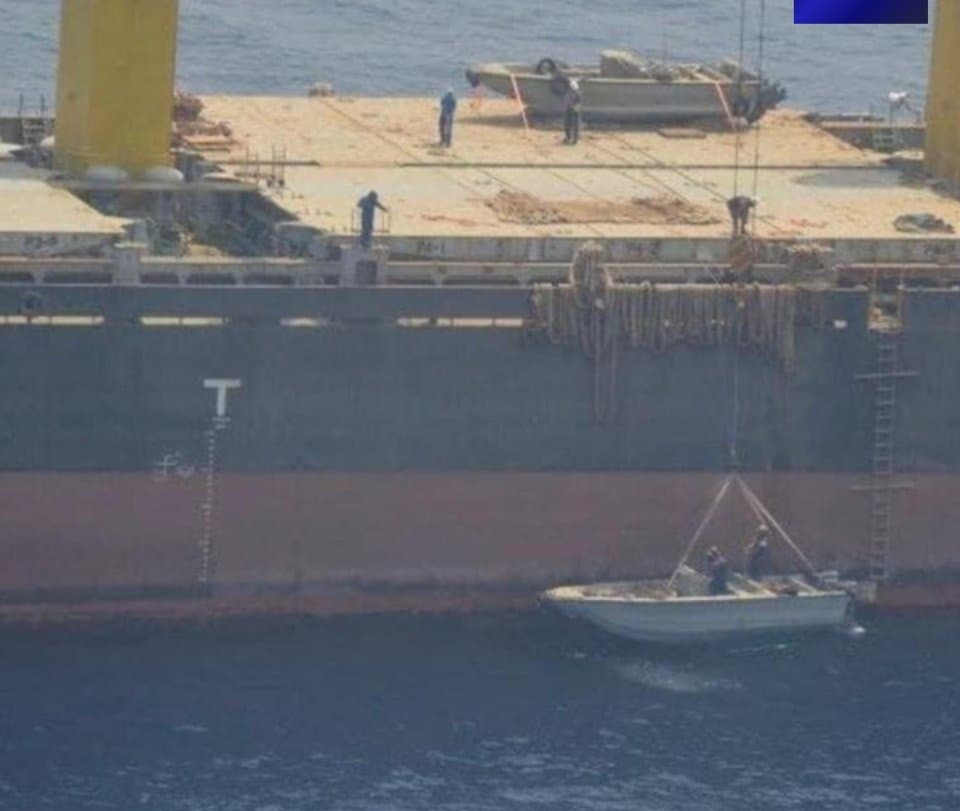Getting your Trinity Audio player ready...
The mysterious electrical malfunction at the Natanz uranium enrichment facility in Iran early Sunday rekindled the world media's interest in the struggle between Iran as it tries to to obtain nuclear capability and Israel as it attempts to stall it for as long as possible.
It is still unclear whether Israel truly is involved in the "very suspicious" incident at Natanz, as one Iranian official put it.
It is also unclear how severe the damage is to the facility, but it has certainly delayed the use of the new centrifuges unveiled just days ago - and older centrifuges used for enriching uranium were also impacted.
The International Atomic Energy Agency, the United Nations nuclear watchdog, will likely be able to shed more light on the situation.
Iran decided to announce the incident for two reasons. Firstly, UN inspectors and their monitoring cameras were still active at Natanz and would have been able to detect the malfunction.
Secondly, the Iranians, who have observed an increase in the Israeli propensity to brag about covert operations, hoping to use any Israeli reaction to gauge whether Jerusalem indeed had a hand in it.
Tehran was similarly interested in testing reports in the New York Times (which has purportedly become the platform for official Israeli leaks) that Israel is hoping to lower the flames in its maritime conflict with Iran in order to mitigate the risk of all out war.
Iran is also hoping to tone down the conflict, something that can be seen in the fact that it has not accused Israel directly of any of the aggressive actions taken against it.
Coincidently, Saturday was National Nuclear Technology Day in Iran, and Iranian President Hassan Rouhani announced that the Islamic Republic was experimenting at Natanz with at least three new types of centrifuges able to enrich uranium 10-50 times faster than before.
This means that Tehran would be able to quickly increase its uranium enrichment production, making it able to produce a nuclear weapon within weeks and not one year, as the U.S. and European signatories to the 2015 nuclear deal had contended.
6 View gallery
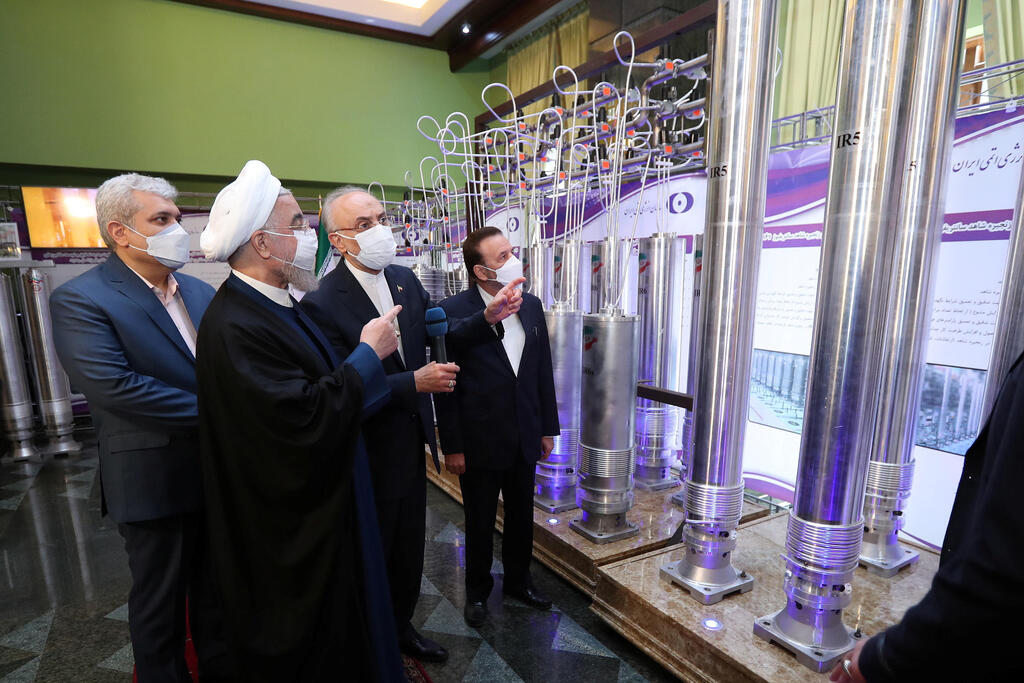

Iranian President Hassan Rouhani inspecting the nuclear facility at Natanz
(Photo: Reuters)
Rouhani's statement on Saturday shows Iran aims to be able to reach the nuclear threshold within months - once it has made its decision to do so. It appears to be lacking only one component - the detonation mechanism.
Iran's uranium enrichment takes place in large facilities that make it impossible to hide what is being done from the United Nations International Atomic Energy Agency.
In contrast, efforts to develop blast mechanisms and design bombs can be conducted in relatively small laboratories and facilities that Iran is careful to hide from inspectors.
All this is important for understanding the Iranian strategy and Israel's counter-strategy.
Iran is dragging its feet in its contacts with the global powers, coming up with various bizarre demands in order to return to the nuclear deal, because it striving to quickly have the technological capabilities and knowledge to produce nuclear weapons before reaching any agreement with the U.S. and the rest.
6 View gallery
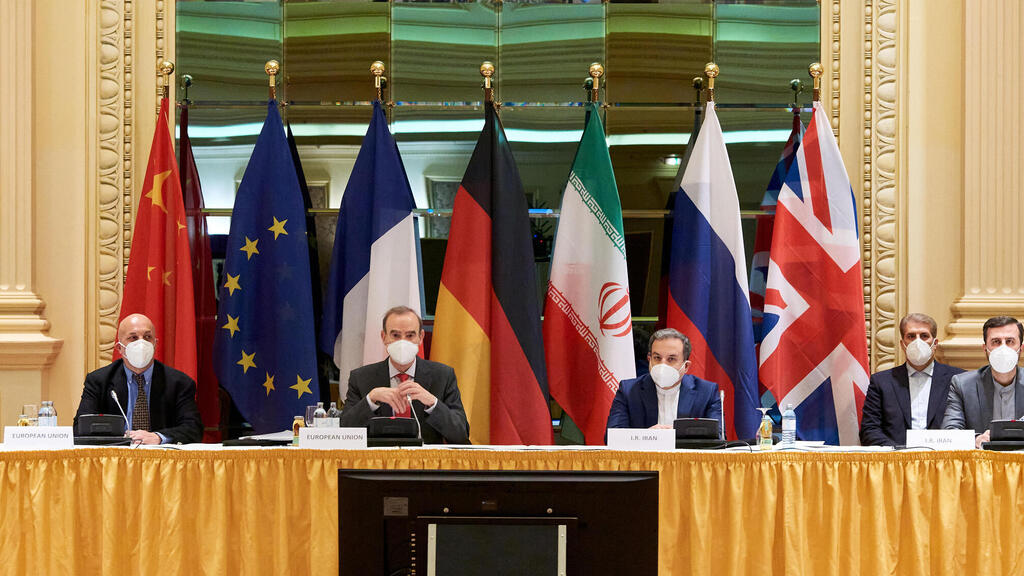

European and Iranian officials at the start of nuclear talks in Vienna last week
(Photo: Reuters)
Israel fears the Iranians will achieve this goal and the world will have missed the opportunity to stop Iran, thereby leaving the Islamic Republic with nuclear capabilities - with all its implications for the Middle East and for the entire world.
Simply put, Israel fears Iran is following in the footsteps of North Korea, which has the world on pins after obtaining nuclear weapons.
It is therefore likely that the mishap at the Natanz facility may not have been caused by an accident, but rather was sabotage aimed at delaying a nuclear race accelerated by negotiations with the U.S. over the removal of sanctions.
Whether Israel's long arm was involved in the power outage in Natanz or not - the incident has nothing to do with the visit of U.S. Secretary of Defense Lloyd Austin, who arrived in Israel this morning.
Even so, this visit tells us something about the state of relations between Israel and the United States - and it is far from encouraging.
While Austin is the secretary of defense, and is an important person in the Biden administration, he is only involved in the field of security.
His visit signals to Israel that the Biden administration, like its predecessors, is committed to Israel's security and to maintaining its qualitative military advantage in the region.
6 View gallery
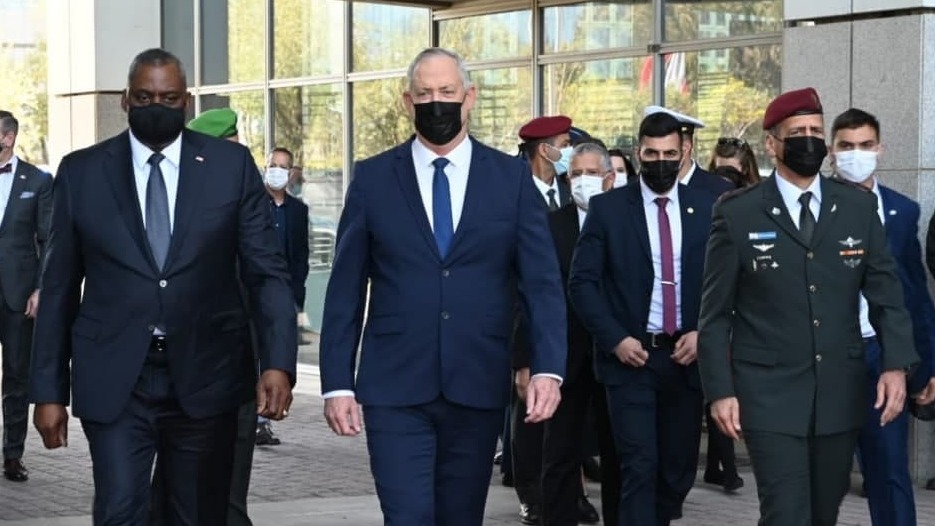

L-R: U.S. Secretary of Defense Lloyd Austin, Defense Minister Benny Gantz and IDF Chief of Staff Aviv Kochavi at the Defense Ministry HQ in Tel Aviv on Sunday
(Photo: Defense Ministry)
Similarly, the United States will next week welcome IDF Chief of Staff Aviv Kochavi and Mossad Director Yossi Cohen, while National Security Adviser Meir Ben-Shabbat also has a Washington trip in the offing.
But the Biden administration is explicitly signaling that the close and strategic relationships at the highest level – such as Donald Trump and even Barak Obama had with Prime Minister Benjamin Netanyahu or the White House had the Israeli ambassador to Washington - will not be restored for the time being at least or will remain frozen until there is a turnaround in Israel.
The Americans are telling Israel that they are attentive to all the concerns regarding the Iranian nuclear program and are interested in the quality information Jerusalem has on this subject and the Middle East in general.
They will also use this information for its contacts with Tehran, but not beyond that.
On the Palestinian issue, too, the contacts are at the secretary of state level between Antony Blinken and Foreign Minister Gabi Ashkenazi, and not between Biden and Netanyahu.
6 View gallery
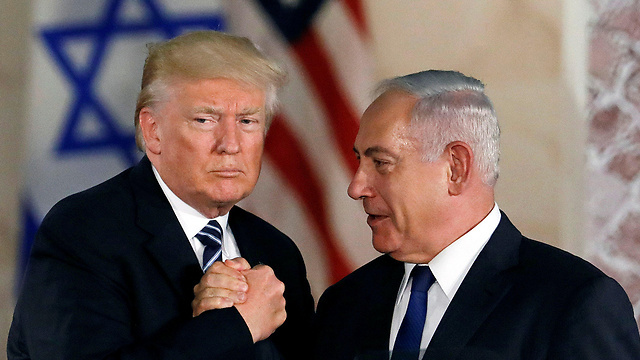

Then-U.S. president Donald Trump meeting with Prime Minister Benjamin Netanyahu in Jerusalem
(Photo: Reuters)
Israeli-American relations are currently functioning solely at the operational level and not at the higher level that Israel has become accustomed to in recent years.
This is the significance of Austin's visit not only to Israel, but also to other U.S. allies in the region including Saudi Arabia, the United Arab Emirates and other Gulf states.
America has a clear message to Israel: We are committed to your security, but you cannot dictate the global strategy we are using to try to achieve stable relations with Iran until we have time for you.


